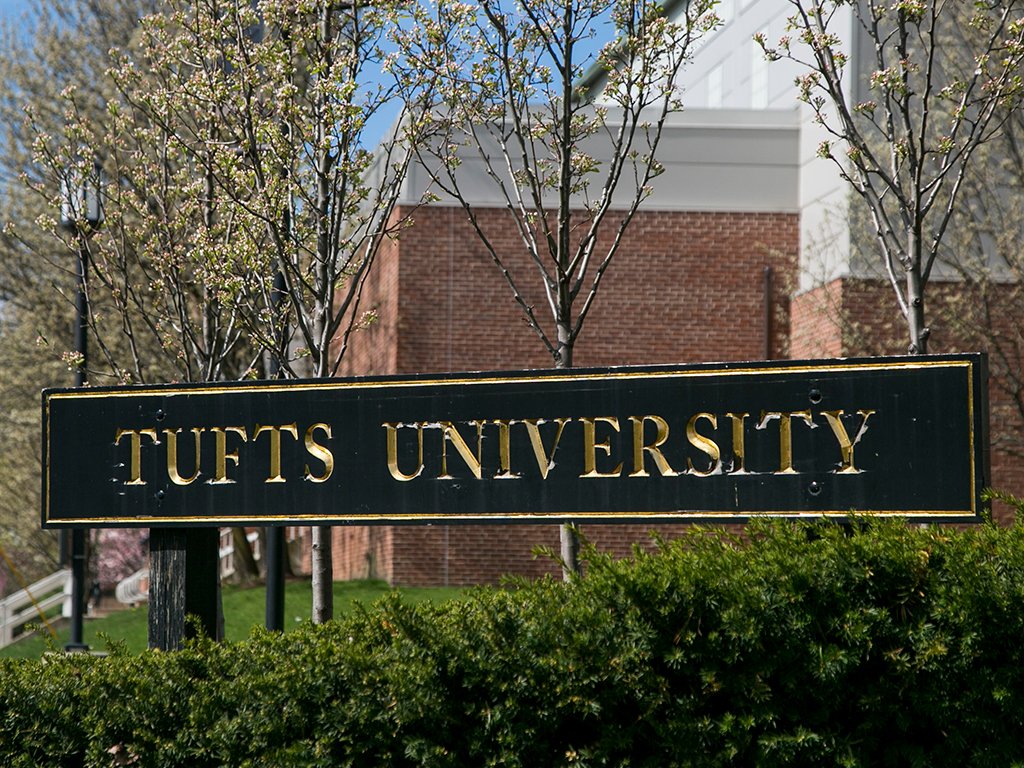Students that have an interest in design and construction always wish to study civil engineering. In the U.S, Michigan has some of the best schools that offer degrees in civil engineering. In addition, the career is very lucrative and has better job prospects for its graduates.
Do you wish to acquire top-notch civil engineering education in the U.S? If yes, then, we have put together an analysis of the top civil engineering schools in Michigan for you based on acceptance rates, accreditation, tuition fees, and the number of programs. Studying in any of the institutions will help you develop the skillset to build a better career.
According to research, civil engineering happens to be the oldest branch of engineering. This is because the profession has been an aspect of life since human existence.
Civil engineering in Michigan is usually a four-year undergraduate program that teaches students the skills that industries need. Most of the top schools in Michigan that have civil engineering degrees require strong academic grades in math and other science subjects.
In addition, the four-year duration is usually divided into eight (8) semesters. For students to graduate, they must have to pass 10+2 examinations or an equivalent examination from a recognized board.
So, just relax and read on! This article aims at providing answers to the following questions on the best schools for Civil Engineering CE in Michigan.
Before I continue, let’s go through the table of content below to get an overview of what the article entails.
Why study at Michigan?
Students in the U.S, as well as international students, see Michigan as a hub of learning for so many reasons. Meanwhile, we will discuss some of these reasons below.
Firstly, Michigan has approximately 119 institutions of higher learning that offer world-class education to its students. It might interest you to know that Ann Arbor has the second-highest student population in the whole of the United States.
Secondly, student life at Michigan schools is something to have an experience of. At the institutions, American Football is central to student entertainment as well as the Greek system of fraternities and sororities.
Thirdly, many schools in Michigan offer scholarships based on merit or financial need. Scholarships from Michigan schools are not as widely available for international students as it is for in-state students. However, international students can win scholarships from their country’s government in order to make study in Michigan possible.
Finally, international students can work after graduation depending on their type of visa they have. For STEM students, they have 29 months to live and work after graduation in Michigan.
What does a Civil Engineer do?
A civil engineer is a professional that designs and oversees the construction of public works including roads, bridges, dams, tunnels, buildings, airports, water and sewage systems, and other large infrastructure projects.
Meanwhile, the duties of a civil engineer include:
Get to know: 17 Best Civil Engineering Companies in UK | 2020
How long will it take me to study Civil Engineering in school in Michigan?
Generally, it takes four years to complete a bachelor’s degree in civil engineering. If you choose to earn a master’s in civil engineering, it will take you a couple of years to that. But first, you will need a high school background in mathematics, statistics, natural sciences, and computer science, as well as communication skills.
As college students, future civil engineers take basic courses in mathematics, statistics, and physics. Advanced classes include topics such as engineering design and analysis, mechanics of engineering, and fluid dynamics. Students spend a lot of time doing laboratory and fieldwork. Some work part-time as interns or in co-op programs.
What is the salary and job outlook of Civil Engineers?
According to the BLS report in 2019, the average annual salary for civil engineers was $87,060. The lowest 10 percent earned less than $55,380, and the highest 10 percent earned more than $144,560.
On the other hand, the employment of civil engineers is projected to grow by 6% from 2018 to 2028. This is fast as the average for all occupations. As infrastructure continues to age, civil engineers will be needed to manage projects to rebuild, repair, and upgrade bridges, roads, levees, dams, airports, buildings, and structures of all types.
What are the top schools that award Civil Engineering degrees in Michigan?
In this article, we have compiled a list of the best civil engineering schools in Michigan that offer several degrees including associate, bachelor’s, masters, and Ph.D.
The compilation of the top schools for civil engineering in Michigan was done based on; acceptance rate, accreditation, number of programs, student-faculty ratio, tuition fees, and graduation rate.
Therefore, below is the list of the best civil engineering schools in Michigan, U.S.A:
1. Michigan Technological University
Michigan Technological University is a public research university in Houghton, Michigan that was founded in 1885.
The university offers over 120 undergraduate and graduate degrees. They include engineering, natural and physical sciences, computing, business and economics, technology, environmental studies, arts, humanities, and social sciences.
At MTU, civil engineering is one of the majors at the institution. The university offers bachelor’s, masters, and doctoral programs in civil engineering. During the 2017/18 academic year, MTU awarded 81 bachelor’s degrees and 34 master’s in civil engineering.
Additionally, graduates of civil engineering at Michigan Tech earn an average salary of $64,500 annually within the first five years of their careers.
On the other hand, MTU has an acceptance rate of 74% and a graduation rate of 65%. Its student-faculty ratio is 13:1. The tuition fee for the civil engineering program is $16,130 (Michigan resident) and $36,432 (out-of-state).
Michigan Tech holds accreditation from the Higher Learning Commission.
2. The University of Michigan, Ann Arbor
The University of Michigan is a public research university in Ann Arbor, Michigan that was established in 1817. UMich’s campus is divided into four main areas including the North, Central, Medical, and South campuses.
On the other hand, UMich is known for its very high research and the comprehensive graduate program offers doctoral degrees in the humanities, social sciences, and STEM fields. The university offers bachelor’s, master’s, and doctoral degrees in civil engineering. The most popular of these civil engineering degrees at UMich is a master’s degree.
During the 2017/18 academic session, the university graduated 57 bachelor’s and 32 master’s degree students thereby making it one of the top schools for civil engineering in Michigan.
Interestingly, graduates of civil engineering at UMich that have a bachelor’s degree make a starting median salary of $60,000 annually while those with a master’s degree in the field earn $67,00 per year.
The University of Michigan has an acceptance rate of 27%, a graduation rate of 90%, and a student-faculty ratio of 15:1. The undergraduate tuition and fees at UMich for the civil engineering program are $7,615 (Michigan resident) and $25,436 (out-of-state).
UMich holds accreditation from the Higher Learning Commission (HLC).
3. Lawrence Technological University
Lawrence Technological University is a private university in Southfield, Michigan that was established in 1932.
LTU has a student enrollment of approximately 4,500 students, offering more than 100 programs in four colleges. In addition, Lawrence Tech offers undergraduate, masters, and doctoral programs in civil engineering. This makes it stand-out as one of the best schools in Michigan that award civil engineering degrees.
Furthermore, the university offers online programs for students that are working or cannot visit the campus regularly for classes. During the 2017/18 academic year, about 891 students took online classes at Lawrence Tech.
Graduates of this great institution make an average starting salary of $55,300 annually.
LTU has an acceptance rate of 60%, a graduation rate of 64%, and a student-faculty ratio of 11:1. The undergraduate tuition for the civil engineering program at Lawrence Tech is $1160 per credit hour.
The university holds accreditation from the Higher Learning Commission.
4. Michigan State University
Michigan State University is a public research university in East Lansing, Michigan that was established in 1855.
The university offers a rolling admissions system. The degree programs for the civil engineering at MSU include bachelor’s, master’s, and Ph.D. In addition, the institution awarded 77 bachelor’s degrees, 14 master’s degrees, and 5 doctoral degrees in civil engineering to its students. This, thereby, makes Michigan State University one of the top schools for civil engineering.
Furthermore, MSU has an acceptance rate of 72%, a graduation rate of 77%, and a student-faculty ratio of 16:1. The undergraduate tuition fee for the civil engineering program at MSU is $482 per credit hour (Michigan resident) and $1,325.50 per credit hour (out-of-state).
The university holds accreditation from the Higher Learning Commission.
5. Wayne State University
Wayne State University is a public research university in Detroit, Michigan that was established in 1868.
WSU is made up of 13 schools and colleges that offer over 350 programs to approximately 27,000 students. In addition, the school offers bachelor’s, master’s, and doctoral programs in civil engineering thereby making it one of the best in the field in Michigan.
During the 2017/18 academic year, the university awarded 40 bachelor’s, 38 master’s, and 2 doctoral degrees to its students. Interestingly, graduates of WSU with bachelor’s degree earn an average salary of $60,800 while those with master’s degree earn $71,900 per year.
WSU has an acceptance rate of 67%, a graduation rate of 34%, and a student-faculty ratio of 16:1. The undergraduate tuition for the civil engineering program is $478.16 per credit hour (Michigan resident) and $1,126 per credit hour (out-of-state).
Wayne State University is accredited by the Higher Learning Commission.
6. Western Michigan University
Western Michigan University is a public research university in Kalamazoo, Michigan that was founded in 1903. WMU has five campuses including West Campus, East Campus, Oakland Drive Campus, Parkview Campus, and College of Aviation (Battle Creek, MI).
The university offers 147 bachelor’s degree programs, 73 master’s degree programs, 30 doctoral programs, and one specialist degree program.
Furthermore, the institution has an acceptance rate of 82% and a graduation rate of 54%. Its student-faculty ratio is 16:1. The undergraduate tuition fee for the civil engineering program is $556.33 per credit hour (Michigan resident) and $695.42 per credit hour (out-of-state).
Western Michigan University holds accreditation from the Higher Learning Commission.
7. Central Michigan University
Central Michigan University is a public research university in Mount Pleasant, Michigan that was founded in 1892. It has a student enrollment of over 20,000 on-campus students as well as about 7,000 students that take their classes online.
CMU offers 200 programs at the undergraduate and graduate levels of which civil engineering is a major. Central Michigan University comes into the list of top schools for civil engineering in the state.
The university has an acceptance rate of 68%, a graduation rate of 59%, and a student-faculty ratio of 20:1. Its undergraduate tuition for the civil engineering program is $434.00/credit hour.
Central Michigan University is accredited by he Higher Learning Commission.
8. University of Detroit Mercy
The University of Detroit Mercy is a private, Roman Catholic university in Detroit, Michigan that was established in 1877. The university is under the sponsorship of the Society of Jesus and the Religious Sisters of Mercy.
UDM comprises of seven schools and colleges of which engineering is one of them. At the university, the school of engineering administers the civil engineering program. The programs available to students include bachelor’s, master’s and Ph.D.
During the 2017/18 academic year, the university through its school of engineering award 8 bachelor’s and 10 master’s degrees to its students.
UDM has an acceptance rate of 65% and a graduation rate of 65%. Its student-faculty ratio is 11:1. The tuition fee for the civil engineering program at UDM is $1,021 per credit hour.
The University of Detriot Mercy holds accreditation from the Higher Learning Commission. The civil engineering program is accredited by the Engineering Accreditation Commission of ABET.
9. Eastern Michigan University
Michigan University is a public research university in Ypsilanti, Michigan that was founded in 1849. Presently, the university comprises of seven colleges and schools.
The civil engineering program at EMU prepares students for productive careers in the field. It lays emphasis on at least four areas of civil engineering, including and not limited to, Structural Analysis and Design, Transportation Engineering, Construction Engineering and Management, Water and Waste Water Engineering, Soil Mechanics and Foundation Engineering, and Pavement and Materials Engineering.
Interestingly, graduates of civil engineering from EMU make a starting salary ranging from $60,000 to $75,000 and climbing to $100,000 within five to ten years. So, you can see why EMU is among the top schools for civil engineering in Michigan.
The university has an acceptance rate of 45%, a graduation rate of 39%, and a student-faculty ratio of 14:1. The undergraduate tuition fee for the civil engineering program is $10,480.
EMU holds accreditation from the Higher Learning Commission.
Get to know about: Best Civil Engineering Schools in Georgia | 2024
10. Siena Heights University
Siena Heights University is a Roman Catholic university in Adrian, Michigan that was established in 1919. The university has over 40 academic programs.
At Sienna Heights, students can earn two bachelor’s degrees (one from the University of Dakota and the other from SHU). Do you know why? This is because SHU has a partnership with UND under its new engineering program making it possible for its students to earn two degrees within five years.
Meanwhile, students complete all basic math, science, and general education courses on the SHU campus. The engineering courses are administered online from UND.
All first- and second-year engineering courses will include face-to-face meeting times with an appropriate instructor at Siena Heights to complement the material in the online content from UND.
Additionally, students will complete course work for a second degree at Siena Heights. Students are considered full-time students at Siena Heights for the duration of their program.
11. Ferris State University
Ferris State University is a public research university with its main campus in Big Rapids, Michigan that was established in 1884.
At the university, the civil engineering program focuses on instruction in soil and material testing, highway technology, engineering, design, and the construction process. Additionally, the courses in the program include English, mathematics, and physics as well as related courses in soil and materials testing, surveying, estimating, plans and specifications, basic computer skills, hydrology, highway design, and computer design.
FSU has an acceptance rate of 74%, a graduation rate of 45%, and a student-faculty ratio of 16:1.The tuition fee for the civil engineering program is $443 per credit hour (U.S and Canadian citizens) and $715 per credit hour (international students).
The university holds accreditation from the Higher Learning Commission.
12. Northern Michigan University
Northern Michigan University is a public university in Marquette, Michigan that was founded in 1899.
The civil engineering program at NMU provides students with the knowledge and experience needed to hold either supervisory and technical positions. Additionally, the quality of the program will help them to gain employment in engineering or other technical and related positions in the industry.
The university has an acceptance rate of 74% and a graduation rate of 45%. Its student-faculty ratio is 20:1. The tuition fee is $11,679.94 per year (Michigan resident) and $17,175.94 per year (out-of-state).
NMU holds accreditation from the Higher Learning Commission.
13. St. Clair County Community College
St. Clair County Community College is a public community college in Port Huron, Michigan that was established in 1923. The university offers associate and certificate programs as well as online programs.
The civil engineering program at the institution emphasizes planning, design, construction, and maintenance of buildings and infrastructure such as roads, bridges, sewers, and water distribution systems.
Furthermore, the university has an acceptance rate of 100%, a graduation rate of 23.7%, and a student-faculty ratio of 19:1. The tuition fee at SC4 is as follows:
- $136 per contact hour and $31.50 technology fee per contact hour (Residents of St. Clair County Community College district)
- $257 per contact hour and $31.50 technology fee per contact hour (Residents of the state of Michigan outside the college district)
- $375 per contact hour and $31.50 technology fee per contact hour (out-of-state and international students enrolled through visas)
St. Clair County Community College is accredited by the Higher Learning Commission.
14. Monroe County Community College
Monroe County Community College is a public community college in Monroe County that was established in 1964.
The highest degree that the university awards is an associate. However, through its partnership Eastern Michigan University and Sienna Heights University, one can acquire a bachelor’s degree in civil engineering without having to leave the university.
MCCC has an acceptance rate of 100%, a graduation rate of 22.4%, and a student-faculty ratio of 9:1.
The university holds regional accreditation from the Higher Learning Commission.
15. Lansing Community College
Lansing Community College is a public community college with its main campus in Lansing, Michigan that was established in 1957.
LCC has an acceptance rate of 100%, a graduation rate of 11.5%, and a student-faculty ratio of 11:1. The tuition fee for the civil engineering program at LCC is $222 per credit hour (in-state), $333 (out-of-state), and $389 (international students).
LCC is accredited by the Higher Learning Commission.
Conclusion
The quality of education that schools in Michigan offer stands out among all others especially in the field of civil engineering. Meanwhile, students can specialize in mechanics, hydraulics, geotechnics (using knowledge of the earth’s crust to solve construction problems), materials science and statistical analysis.
If you’re dreaming of studying civil engineering in the U.S.A, then, Michigan is the sure bet for you. At Michigan, you’ll get the best schools that offer top-notch civil engineering programs.
FAQs on the Best Civil Engineering Schools in Michigan
Yes, it is. A career in the field can land you a very lucrative job in almost every sector.
Yes. You can acquire an online civil engineering degree at the associate, bachelor’s, master’s, doctoral, and certificate levels.
Some of the online schools include Auburn University, Florida Atlantic University, Johns Hopkins University, Stanford University, University of Central Florida, etc.
The most in-demand specializations in civil engineering include transportation engineering and environmental engineering.
Yes, it is. The career is somehow stressful because it requires completing big projects within a specified time.





